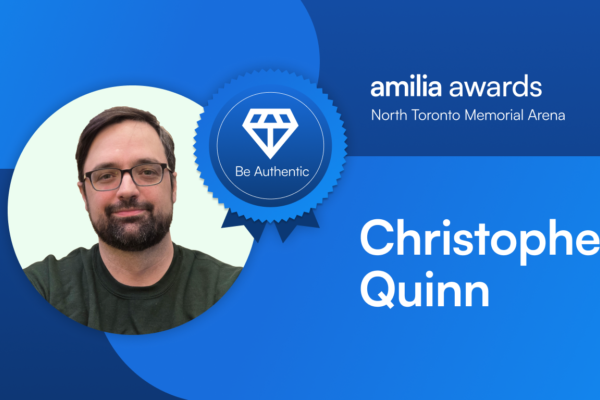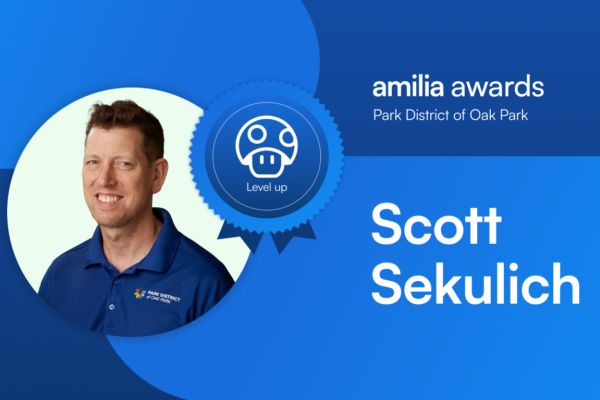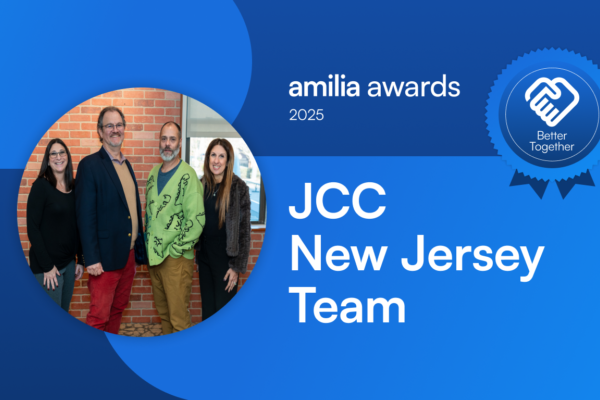What was the moment that sparked 110%?
I reflected on something. I was privileged to be an intern supervisor, and I said to them: “you can be committed to your position or your profession.” I had an opportunity to exemplify and strengthen my commitment to the profession by excusing myself from one organization and trying to do something good for the profession. I felt like this was my chance to have a broader reach.
How would you explain your love affair with P&R? Why did you become interested in financial sustainability?
It started when I was 25, working as a Sports Coordinator. I remember asking about the budget and I was excused and told “don’t worry about it, we have plenty of money in the bank.” I was shocked by that reaction. As I got into admin roles it became my responsibility to be fiscally smart, so I made sure everyone in the organization understood the budget process. It was critical to the survival of the organization and to our responsibility to taxpayers that it was top of mind. Services and facilities were important, but budgeting and how we thought about our finances was critical because it was all about how we were going to sustain our legacy. It was not only about today’s citizens but those of 2050 – who aren’t even here yet! We're the stewards of other people’s money, but they didn’t know how it was being spent. There was this gravitational pull for me – I knew that this was important to discuss, and we needed to create a strategy around how we were going to spend these dollars.
What are some examples where you’ve seen the impact on an agency becoming more financially sustainable?
I will tell you the greatest impact is to hear park maintenance employees use terms like “financial sustainability”! Our work is all grounded in education. We encourage those who are in charge to engage all full time and part time employees. When I hear a professional or a board member say something like “we need to be responsible stewards” or question why they make the investment choices they do, this makes me happy. It's the word choice, the meaning and how that translates to actionable results that makes all the difference in the world.
In your own words, how would you describe what FS is and why it’s important?
Having the money to do what’s critically important for your community for the long haul. Doing better with what you have rather than expecting to get more of what may not exist. Being thoughtful about the investment choices you make.
Most people who gravitate toward this field have big social service hearts. We need to write checks – but when we aren’t thoughtful, we are wasting the resources we have, rather than thinking about where we should be putting them in this moment to have the greatest impact on our community and keep the train rolling for the citizens of 2050.
It's not rocket science, but it can be intimidating to social service professionals who aren’t comfortable with numbers. Data is your friend and will help you do what’s important!
What advice would you give to someone who is hesitant to begin the journey to becoming financially sustainable? How much of it would you say is education vs intervention?
It’s a combination of both. If someone put effort into educating themselves, they could do it; they don't necessarily need the intervention. We understand people want to do this work, but they aren’t prepared to do it alone – they want someone to hold their hand. Some may have the competency to do it alone, while others may say they want to get there but need some encouragement and help.
What advice would you give on how to overcome this fear of data and tech?
As social servants, we don’t see data as our friend; we see it more as a nemesis because we think it will take us down a path of loss or it might result in something negative. Alternatively, if we start to look through a rose-colored lens, it can reveal where we have opportunities to serve differently or take care of that park where we’ve been deferring maintenance. We look at data through a lens of loss and anxiety without understanding that none of those things may ever come to fruition.
The organizations who are doing this work are opening the curtain and rather than it being dark they see light! I think we’re going to see more of that, as more organizations dip their toes in the water and say, “it’s warmer than we thought.”
What do you want the Jamie Sabbach and 110% legacy to be?
Our profession embracing the idea, the nobility, the purpose, the “why” of financial sustainability, rather than running from or fearing it. I'd love to see that financial sustainability efforts are a mandate in every system across the US. This is more important than master planning; this becomes foundational for constructing the house. If/when that happens, I will die a happy person.





